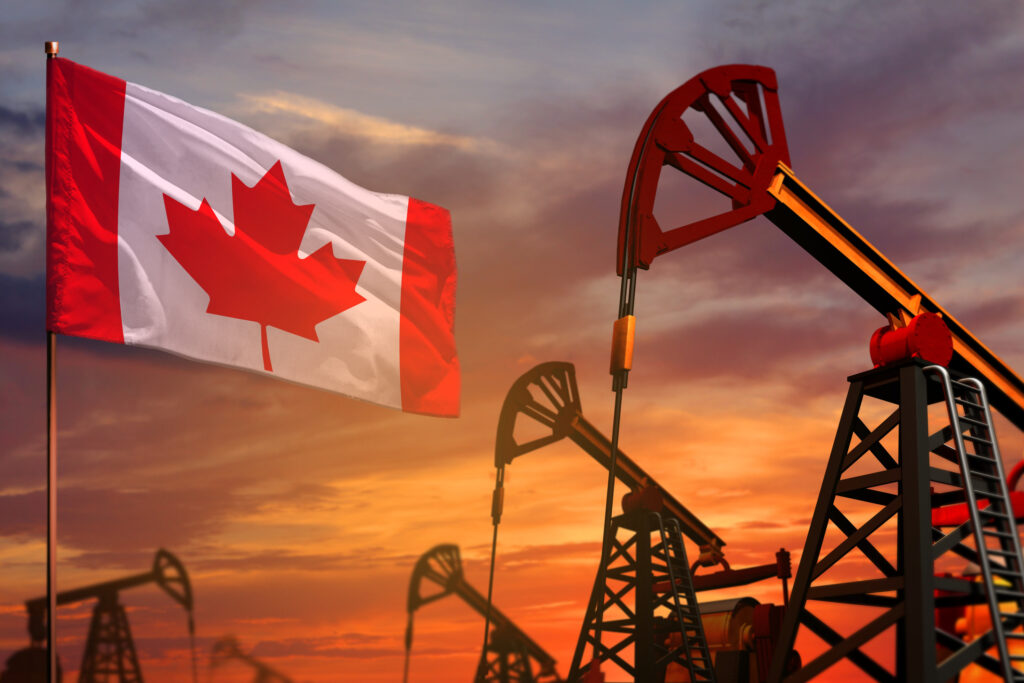(Oil Price) – Canada’s new Prime Minister Mark Carney faces his first real challenge to Canadian unity amid a soured relationship with the long-time trade partner and ally, the United States.

A movement to secede from Canada is growing in the oil-rich province of Alberta, which contributes a large part to Canadian economy and budget and has the highest gross domestic product (GDP) per capita among Canadian provinces.
Alberta could hold a referendum to leave Canada next year if a citizen-led petition gathers the requisite number of signatures requesting such a question to be put to a referendum.
Danielle Smith, the Premier of the Alberta province, said last month “I do not support Alberta separating from Canada. I personally still have hope that there is a path forward for a strong and sovereign Alberta within a United Canada.”
“To be clear from the outset, our government will not be putting a vote on separation from Canada on the referendum ballot; however, if there is a successful citizen-led referendum petition that is able to gather the requisite number of signatures requesting such a question to be put to a referendum, our government will respect the democratic process and include that question on the 2026 provincial referendum ballot as well,” Smith said.
For years, Alberta has been opposing federal legislation regarding emissions and resource development. Alberta has been fighting the federal government on the plan to cap emissions from oil and gas production, which the province and the industry see essentially as a cap on output.
For years, Alberta has been trying to have more pipeline options to export its huge oil and gas resources, including to markets other than the United States.
With the U.S. under President Trump, Carney’s federal government has started to realize that diversification of oil exports – 90% of which go to the U.S. – could be a smart move.
During a meeting with oil and gas executives in Canada’s oil-producing province of Alberta, Carney pledged earlier this month that the federal government would work to fast-track major projects to make Canada an energy superpower.
Carney said he discussed with Smith “what matters most: building one united Canadian economy — including getting big things built and major infrastructure projects off the ground, in Alberta and across Canada.”
Smith, for her part, said that Alberta needs a guaranteed corridor and port access to tidewater off the Pacific, Arctic, and Atlantic coasts for the international export of Alberta resources. The oil-rich province also needs an approval of an oil pipeline to the B.C. Northwest coast, repealing the Tanker Ban to enable exports from the Port of Prince Rupert, and returning the regulation of industrial emissions to the provinces, among other things, Alberta’s premier added.
Alberta is working to engage private backers for a new pipeline to ship about 1 million barrels per day (bpd) of crude from Canada’s oil-producing province to British Columbia on the West Coast, Premier Smith said last week. The pipeline would run from the oil sands in Alberta to the Port of Prince Rupert on British Columbia’s northwest coast, and to international markets afterwards, according to the plans of the province.
“There has to be a real demonstration, and very soon, that some of the priorities of Alberta are going to be addressed,” Smith told The Wall Street Journal in an interview last week.
Albertans are dissatisfied with the way the province has been treated by the federal government for years and the sentiment to secede is not just a fringe movement.
“They are quite literally our friends and neighbours who have just had enough of having their livelihoods and prosperity attacked by a hostile federal government,” Premier Smith said last month.
In May, a poll by Ledger found that 47% of Albertans are in favor of the province becoming an independent country, while 48% are opposed.
Analysts say that the federal government addressing some or most of Alberta’s grievances, including increased access for oil and gas to international markets, could sway potential “leave” voters to want to remain part of a united Canada.
By Tsvetana Paraskova for Oilprice.com

